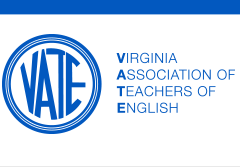Abstract
In the English language arts classroom, students must not only understand and appreciate the value of reading, writing, and speaking, but they must also learn, employ, and hone these skills for use as contributing members of their current and future societies. Our task, then, is to make learning so “useful” that it sticks-- to build a strong foundation of literacy that may continue to expand as students’ life experiences provide more depth and relevance to their work. For reading, specifically, we must both encourage and support interest, stamina, and understanding of the texts we explore, which is no small feat considering students often want to know, “What’s in it for me?” To answer their driving question, we have to sell the “usefulness” of their learning. When learning is “useful,” students are motivated. And, when students are motivated, learning sticks.
Recommended Citation
Tanner-Anderson, Sarah
(2020)
"Making Reading so “Useful” it Sticks,"
Virginia English Journal: Vol. 70:
Iss.
1, Article 5.
Available at:
https://digitalcommons.bridgewater.edu/vej/vol70/iss1/5
Included in
Curriculum and Instruction Commons, English Language and Literature Commons, Language and Literacy Education Commons

